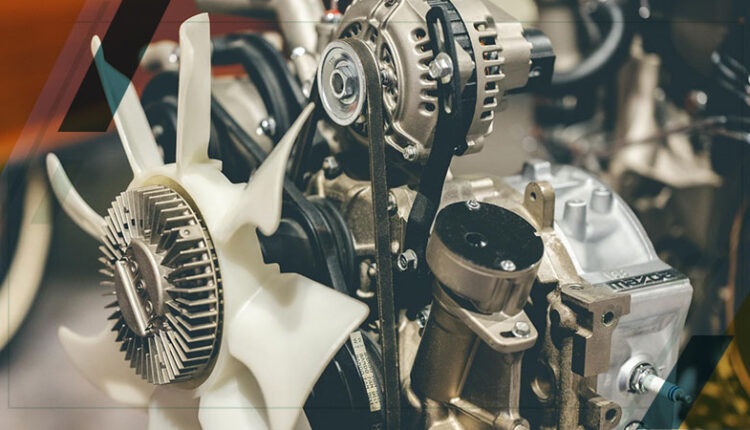In the fast-paced world of industrial operations, efficiency is paramount. To meet the growing demand for increased productivity, turbochargers have emerged as one of the key technologies revolutionizing the way industries operate. In this blog, we will explore turbocompressors, their working principles, applications, and the undeniable benefits they bring to various industrial sectors.
What is a Turbocompressor?
A turbocompressor, also known as a turbocharger, is a device that harnesses the energy from an engine’s exhaust gasses to compress incoming air. This compressed air, in turn, enhances the engine’s overall efficiency and power output. Turbochargers are commonly used in a wide range of industries including automotive, aerospace, marine, and power generation.
Working Principle
At the heart of a turbocompressor lies a turbine and a compressor. The turbine is driven by the flow of exhaust gasses, whereas the compressor compresses the incoming air. As the exhaust gasses pass through the turbine, the turbine wheel spins, which, in turn, drives the compressor wheel. The compressor wheel compresses the incoming air, elevating its density before it enters the engine’s combustion chamber. This process allows more air to mix with fuel, improving combustion and increasing power output.
Key Components and Operation
Turbochargers consist of two primary components – the turbine and the compressor. The turbine is typically powered by exhaust gasses expelled from an engine or an industrial process. As these gases flow over the turbine blades, they induce rotation. This rotational energy is then transmitted to the compressor, which draws in ambient air or gas and compresses it before directing it into the intended system. The compressed air or gas results in improved combustion efficiency and increased overall system performance.
What are the Applications and Benefits of Turbocompressors?
Turbocompressors have found widespread applications across various industries due to their numerous benefits. In the automotive sector, turbochargers have become an integral part of high-performance engines, providing increased power while reducing fuel consumption. Industrial leaders in the automotive industry have witnessed up to a 20% increase in engine power by integrating turbochargers. Additionally, turbochargers have significantly reduced the carbon footprint of vehicles by enabling downsized engines that maintain performance levels.
In the aerospace industry, turbochargers play a critical role in enhancing the power output of aircraft engines, allowing them to fly at higher altitudes and achieve greater speeds. This results in reduced travel time and increased fuel efficiency, making air travel more sustainable.
In marine applications, turbochargers are utilized to boost the power output of ship engines, ensuring efficient operation and reducing emissions. Power generation plants have also adopted turbochargers to optimize energy production, enabling them to generate more electricity with the same fuel input.
What is the Environmental Impact and Energy Efficiency of Turbocompressors?
Turbocompressors have a notable environmental impact, particularly in terms of energy efficiency and emissions reduction. These devices play a crucial role in improving the energy efficiency of various industrial processes by utilizing exhaust gasses to compress incoming air. This results in reduced fuel consumption and lower greenhouse gas emissions. Additionally, turbochargers optimize the combustion process, leading to a higher air-to-fuel ratio and reduced release of pollutants like carbon monoxide, nitrogen oxides, and particulate matter. Innovations in turbocharger technology, such as electric turbocharging, waste energy recovery, advanced control systems, and ongoing research and development, further enhance energy efficiency and minimize environmental impact.
By embracing these innovations and adopting energy-efficient turbocharger systems, industries can significantly reduce their environmental footprint. These advancements contribute to overall energy savings and sustainability efforts. Turbochargers play a crucial role in achieving cleaner air and a healthier environment, making them vital in meeting stringent environmental regulations and achieving sustainability goals.
Decoding the Challenges and Innovations
Turbocompressors have encountered various challenges, but these challenges have been addressed through continuous innovation and technological advancements. Technical challenges, such as achieving the desired flow coefficient and inlet relative Mach number in propane compressors, have been mitigated through advancements in compressor technology. Energy efficiency and environmental concerns have been tackled by utilizing electric motor-driven centrifugal air turbochargers, resulting in oil-free air, reduced energy consumption, and minimized environmental impact. Reliability and durability have been improved through investments in research and development, enhancing the overall performance of turbochargers. Additionally, innovative sealing systems have been developed to reduce oil leakage, and application-specific challenges have been overcome through understanding specific requirements and leveraging expertise in turbocharger technology.
Final Takeaway
Turbocompressors have undoubtedly revolutionized various industrial sectors by enhancing efficiency, reducing emissions, and increasing power output. As industrial leaders strive for greater productivity and environmental sustainability, the integration of turbocharger technology has become imperative. Whether in the automotive, aerospace, marine, or power generation industries, turbochargers continue to play a vital role in driving innovation and progress.
So, the question arises: How will turbocompressor technology evolve in the coming years? Will we witness further advancements that push the boundaries of efficiency and sustainability? Only time will tell, but one thing is certain: turbocompressors have paved the way for a new era of industrial excellence.


